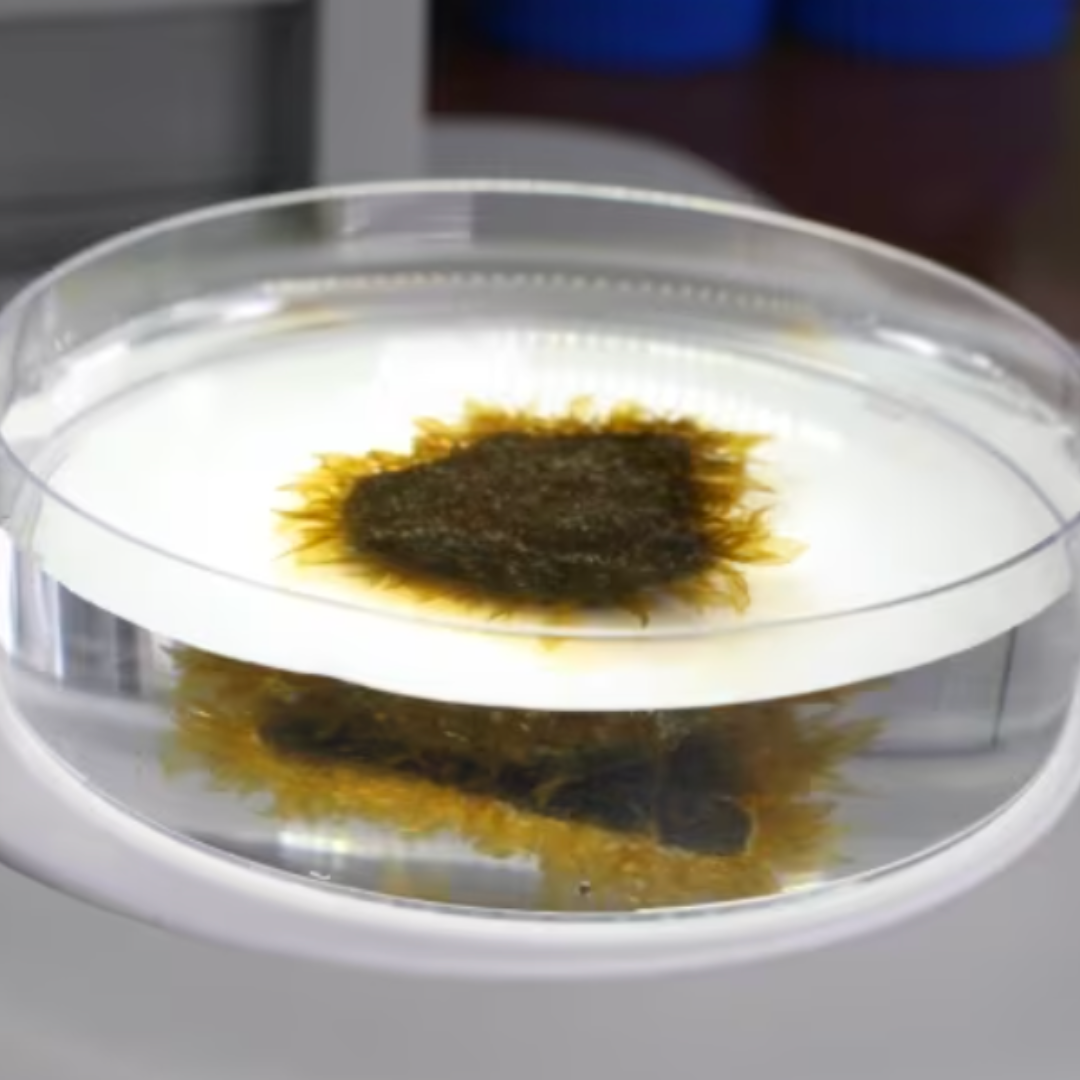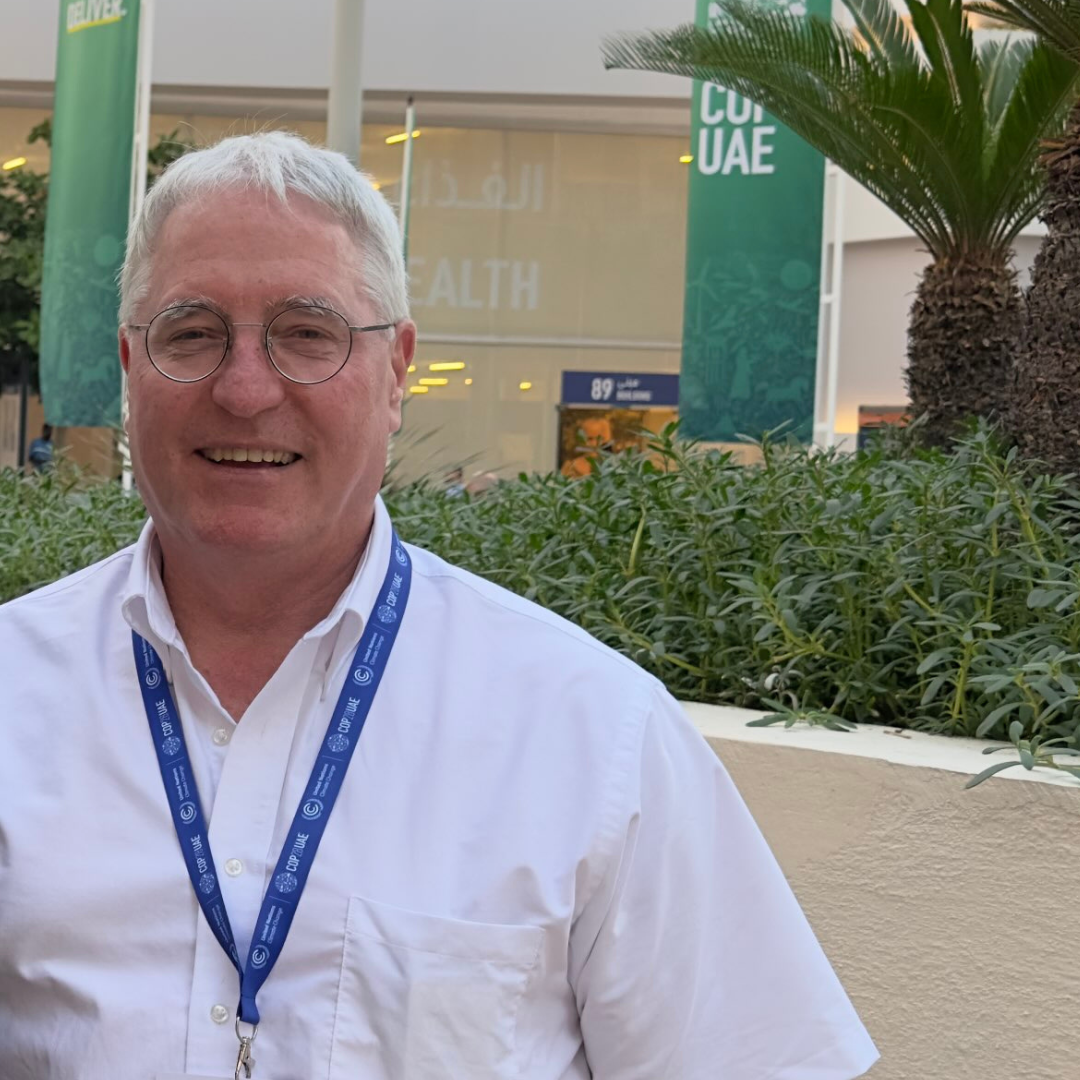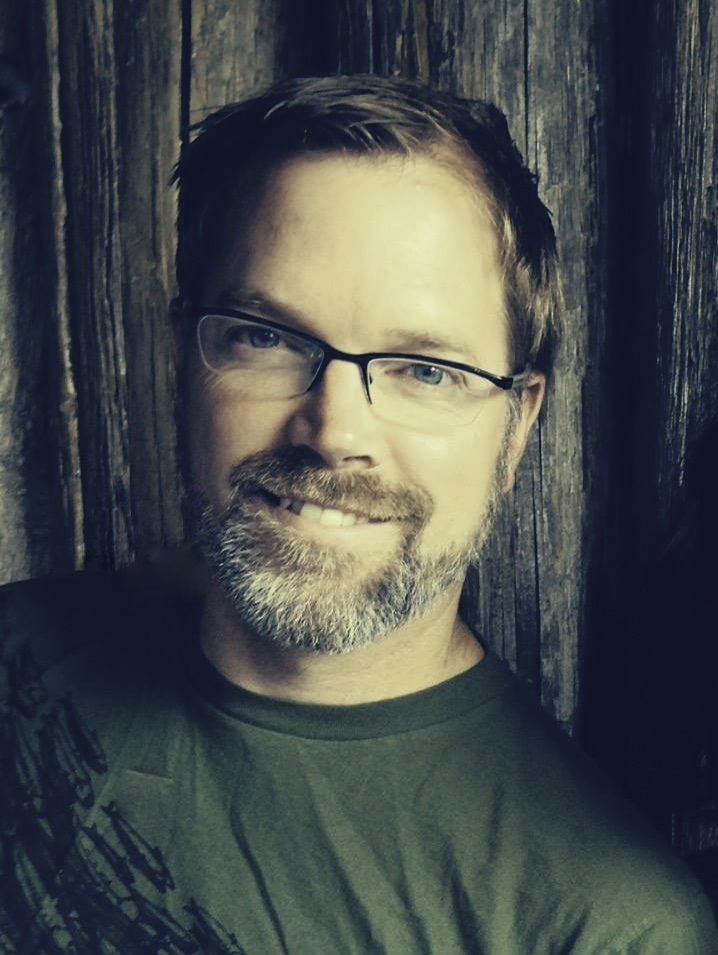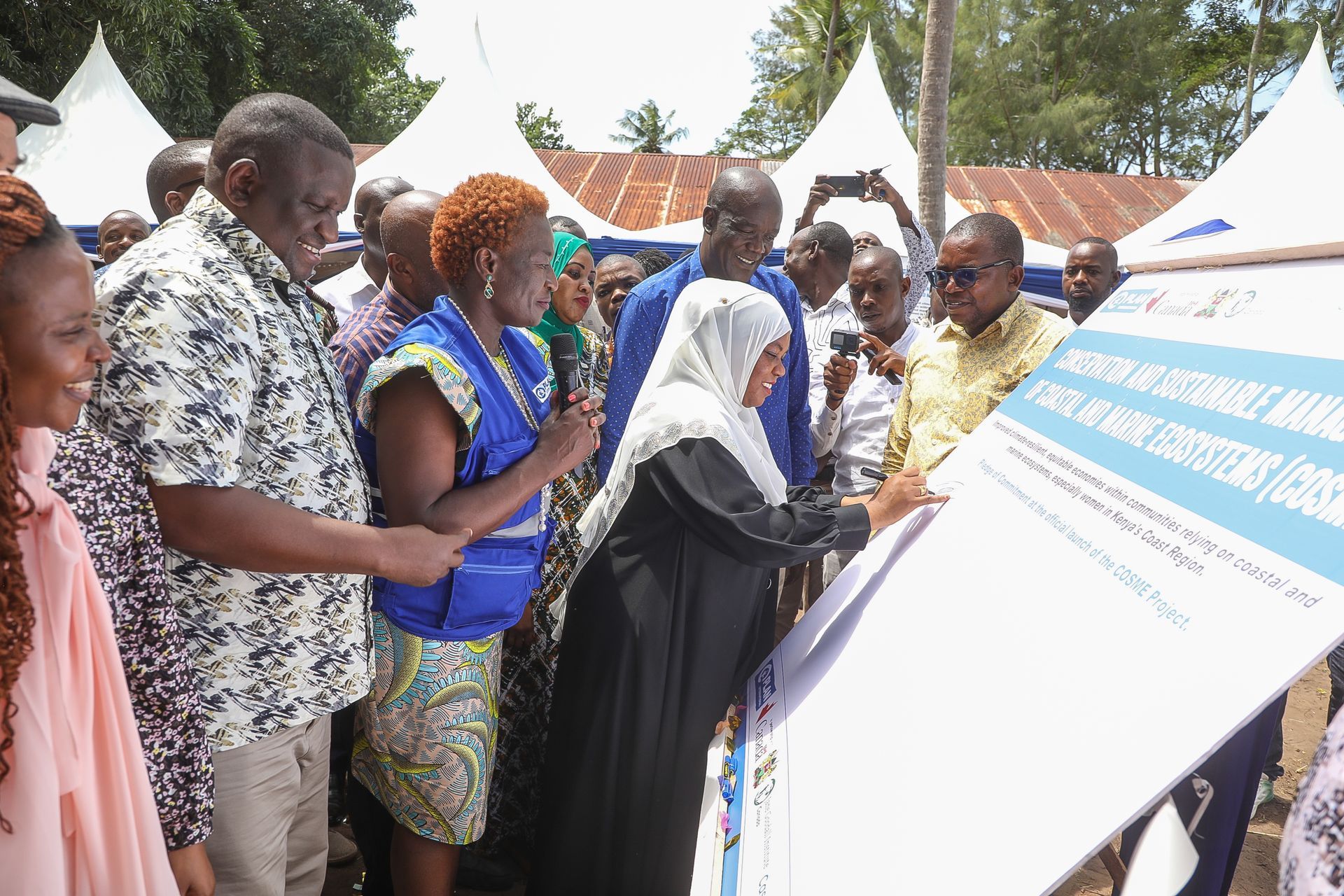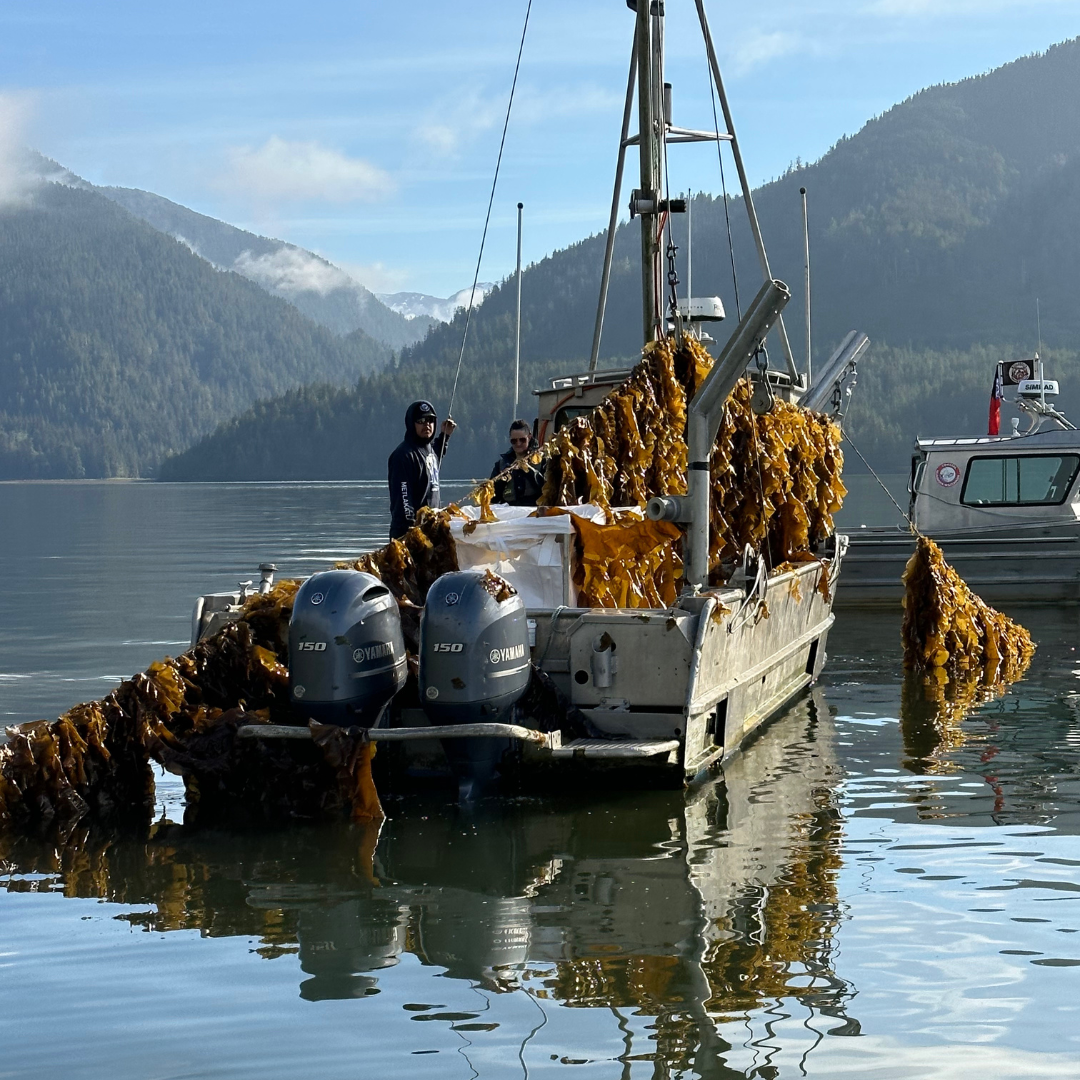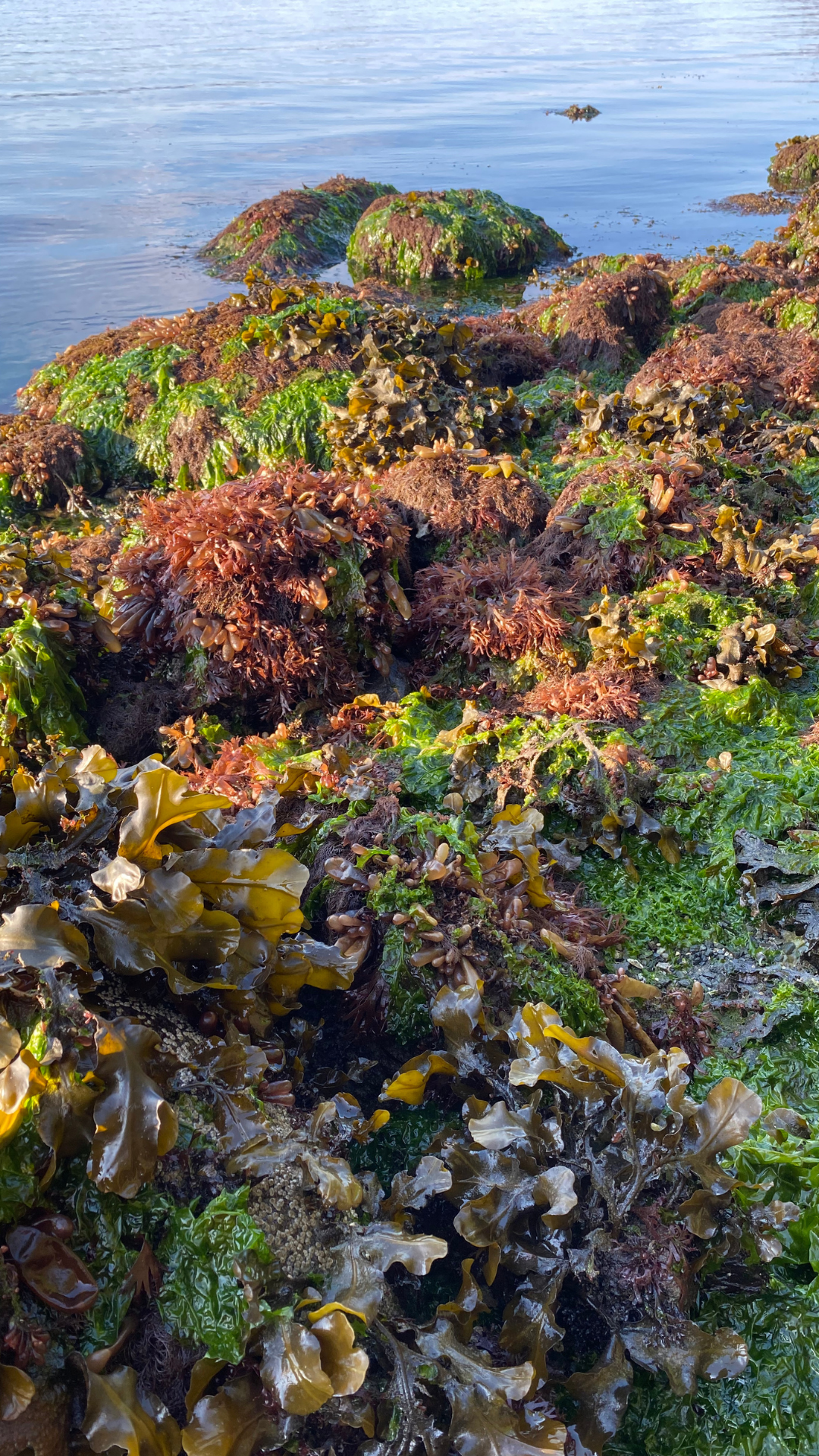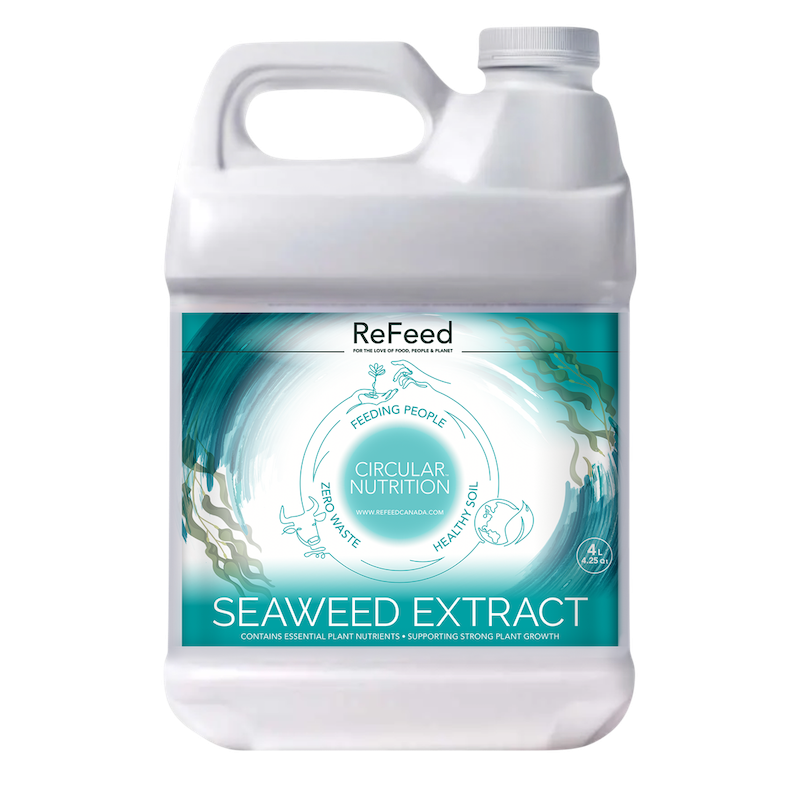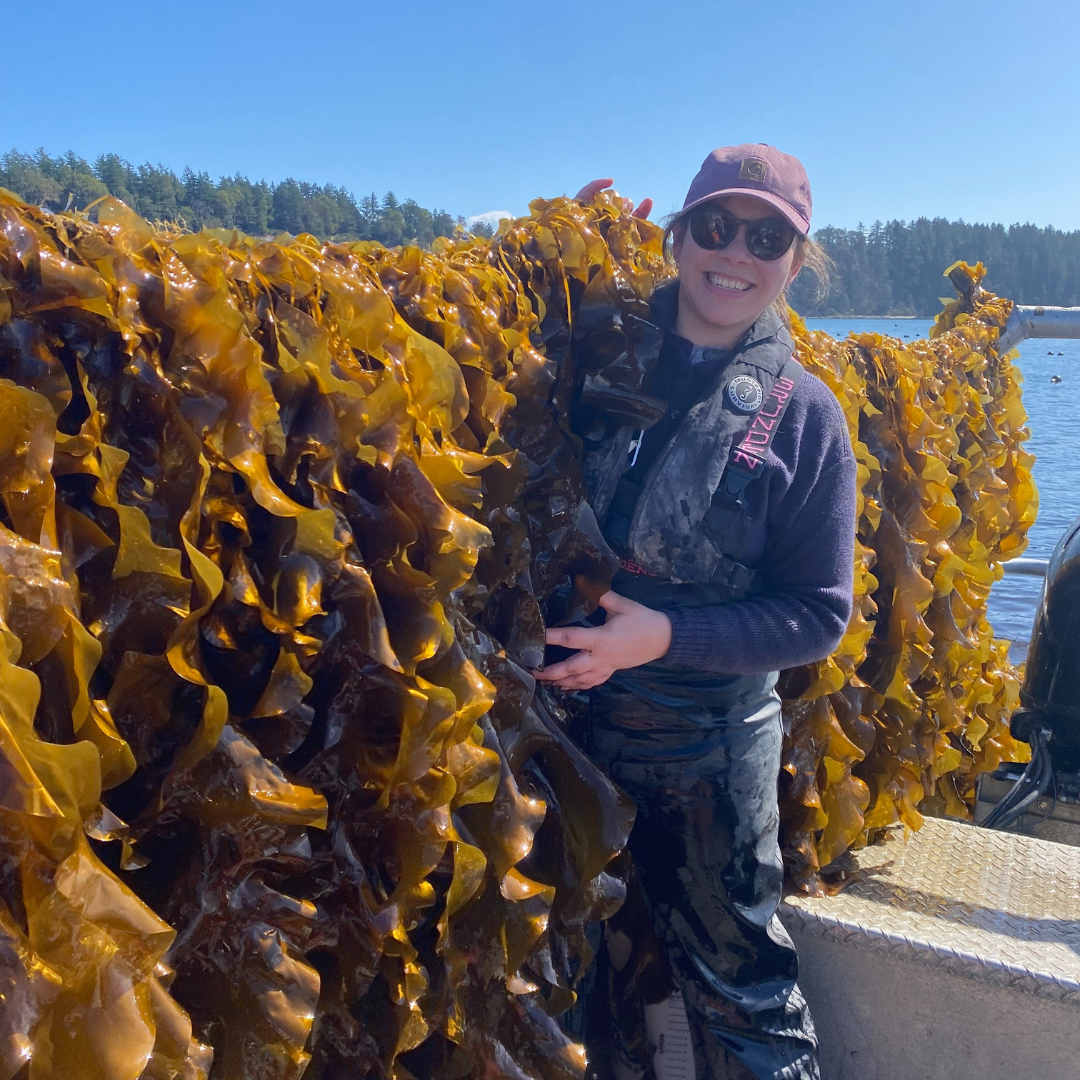At Cascadia Seaweed, we cultivate local species of seaweed and manufacture products for crop and cattle farmers.
With funding from the British Columbia Salmon Restoration and Innovation Fund (BC SRIF), Cascadia Seaweed is implementing cultivated kelp beds for the purpose of evaluating their effect on juvenile salmon.
Cascadia Seaweed was Awarded $1.8M in Grant Funding from the BC Salmon Restoration and Innovation Fund.
Cascadia Seaweed, in partnership with Indigenous coastal communities in British Columbia, is growing to be the largest provider of ocean cultivated seaweed in North America. This climate-positive crop has a wide range of uses and also provides a variety of ecosystem services while it grows in the ocean, even when intended for harvest. Naturally occurring kelp beds are foundational to promoting healthy nearshore marine ecosystems, as highly productive habitats that increase species diversity, and are essential for wild salmon populations, however, kelp beds are drastically decreasing with the effects of climate change.
With funding from the British Columbia Salmon Restoration and Innovation Fund (BC SRIF), Cascadia Seaweed is implementing cultivated kelp beds for the purpose of evaluating their effect on juvenile salmon through cutting-edge monitoring technologies and procedures, along with research partners Bamfield Marine Sciences Centre, Ocean Networks Canada, AML Oceanographics, and Deep Trekker Inc.
Dr. Jennifer Clark, the Chief Science Officer at Cascadia Seaweed, is pleased to welcome Dr. Colin Bates to the team as the lead researcher on this project.
“As BC’s most ambitious seaweed cultivator, Cascadia Seaweed has the capacity to ask questions, study and understand the environmental benefits of what we do,” says Bates. “Kelp farms are known to have ecosystem benefits, but their role in bolstering fisheries is relatively understudied. With declines in both salmon and kelp forests along BC's coast, kelp farming has the potential to help regenerate both. If we demonstrate that kelp farms provide shelter for migrating salmon, this could inform the placement of new kelp farm tenures to maximize these benefits, not only here, but globally.”
“Helping BC’s wild salmon population recover is a monumental task, but the commitment and partnership among First Nations, scientists, governments, and people who care about these iconic fish is unwavering. These projects will help provide us with new information about their habits and populations, and contribute to our ongoing efforts to have healthy salmon populations in the Pacific,” says BC’s Minister of Agriculture, Food and Fisheries, Lana Popham.
BC SRIF is a contribution program jointly funded by the federal and provincial governments to support protection and restoration activities for priority wild fish stocks, including salmon, as well as projects that will ensure the seafood sector in B.C, is positioned for long-term environmental and economic sustainability.
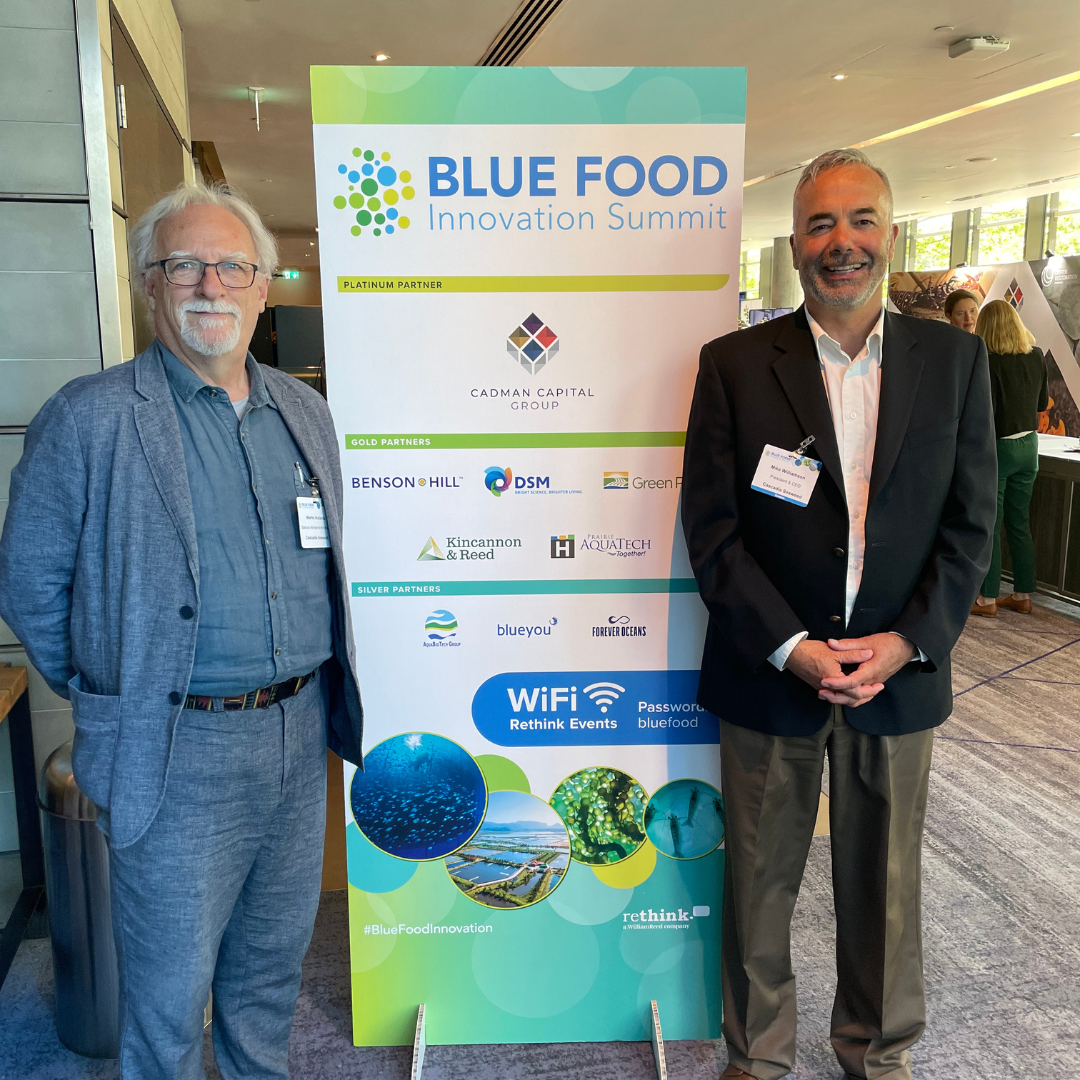
C - 9774 Third Street Sidney British Columbia V8L 3A4
Email: info@cascadiaseaweed.com
Phone: 1-778-351-4484

9774 - C Third Street Sidney British Columbia V8L 3A4
Email: info@cascadiaseaweed.com
Phone: 1-778-351-4484

